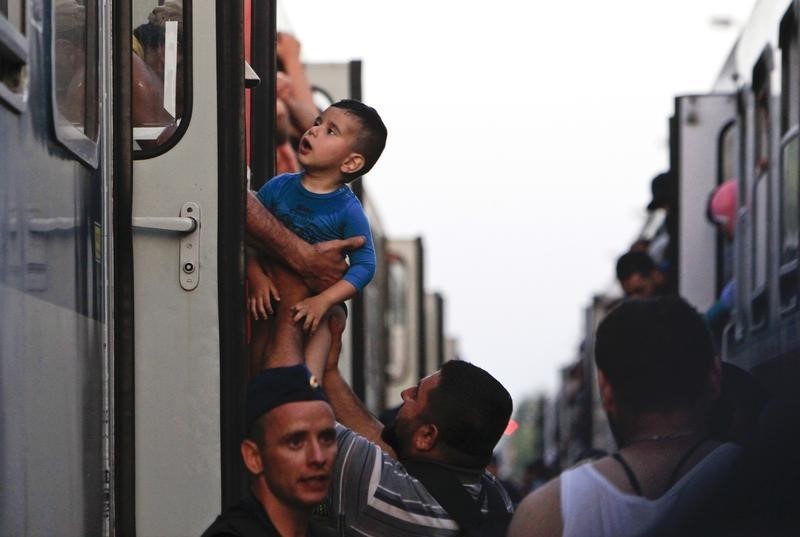BUDAPEST (Reuters) - Hungary will decide in a week whether to close its border with Croatia, where a double fence to stop a massive flow of migrants through the country is "99 percent finished," a top government official said on Thursday.
Hungary has seen more than 330,000 migrants pass through its territory so far this year, Janos Lazar, Prime Minister Viktor Orban's chief of staff, told journalists on Thursday, and the government wants to put an end to the flow.
About 6,000 migrants are passing through daily now, officials say, coming over the border from Croatia and being sent directly to Austria. Since the closure of the border with Serbia, only a few dozen per day now try to enter illegally there.
Landlocked Hungary has struggled to deal with the largest wave of migrants in Europe since World War Two and already operates a fence along its border with Serbia despite criticism from international partners.
Because of that fence, the flow of migrants from Serbia has dropped steeply. But migrants have headed instead to Croatia, which has passed them along in trains and buses to Hungary, leading to an angry exchange between Zagreb and Budapest.
Hungary now coordinates with its Visegrad Four partners - Slovakia, Poland and the Czech Republic - about joint border controls to bolster Hungary's southeastern frontier, which is the external border of Europe's passport-free Schengen zone.
"The fence clearly deters the migrants," Lazar said. "The security border closure (towards Croatia) is 99 percent finished. Whether we put it to use depends on international cooperation and talks ... I hope that in the next week, this matter will be resolved."
He said Hungary was "not indifferent" to the opinions of Austria and Germany, where the vast majority of migrants is headed, but those opinions should not block the closure of the border if Hungary decides to proceed with it.
"Personally I think this (the closure) is inevitable," Lazar said.
The closure of the Hungarian-Croatian border could cause a new bottleneck as the flow of migrants would have to go further west to Slovenia and then on to Austria, or via Romania.

"The government has a plan to build a border closure on the Romanian border as well if one becomes necessary," Lazar said.